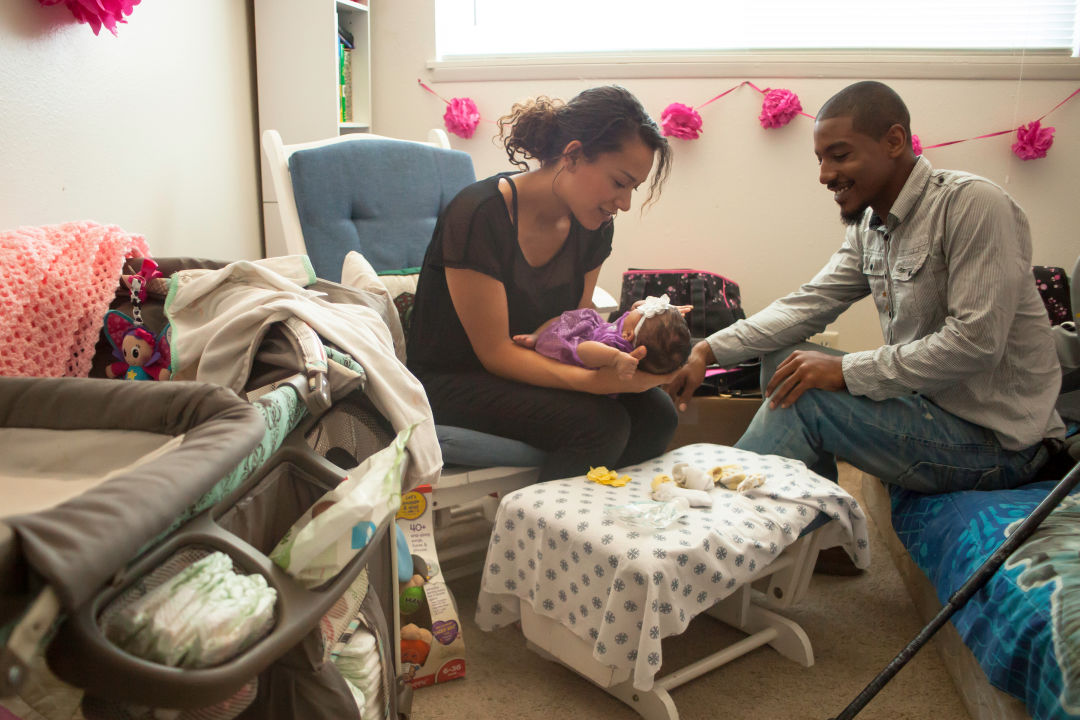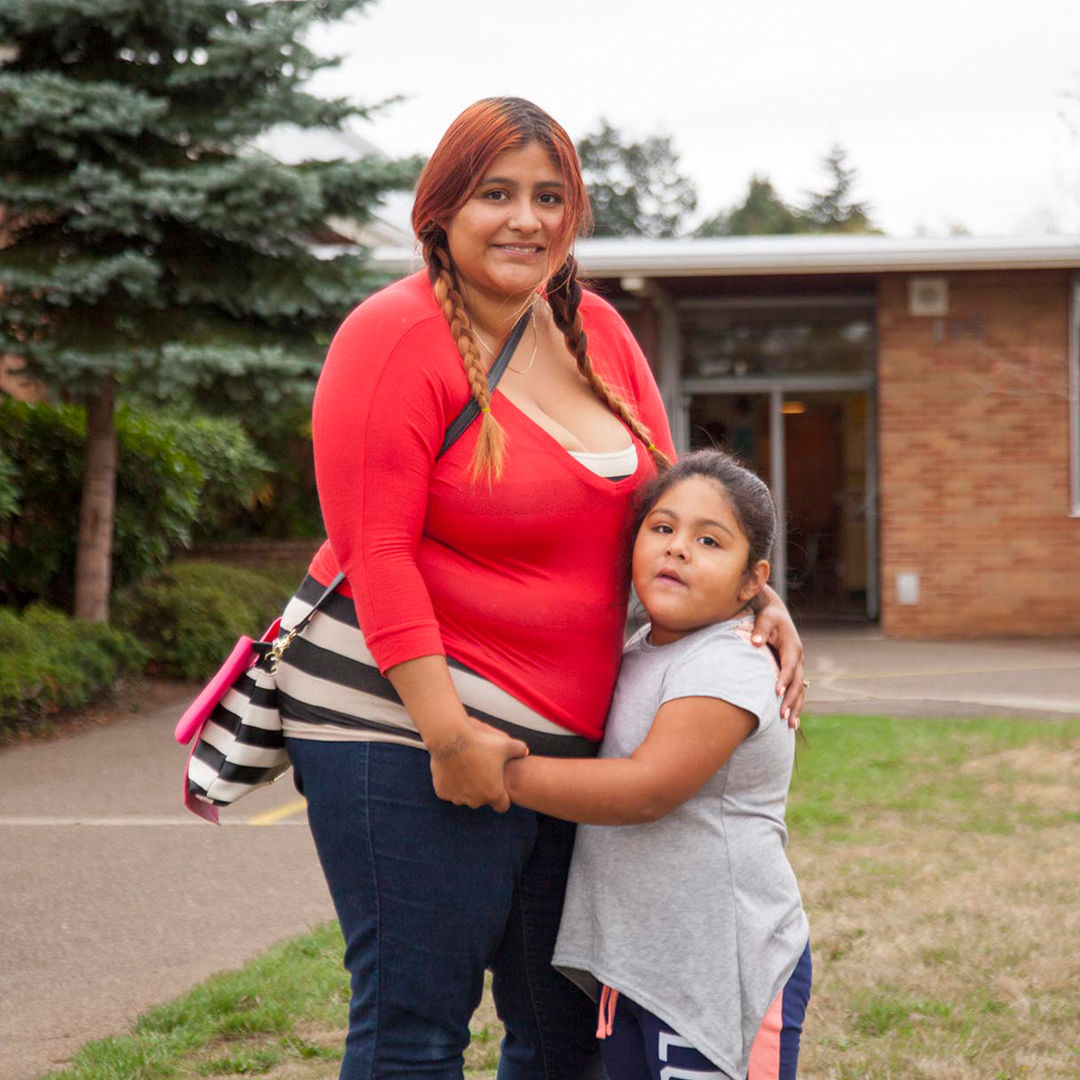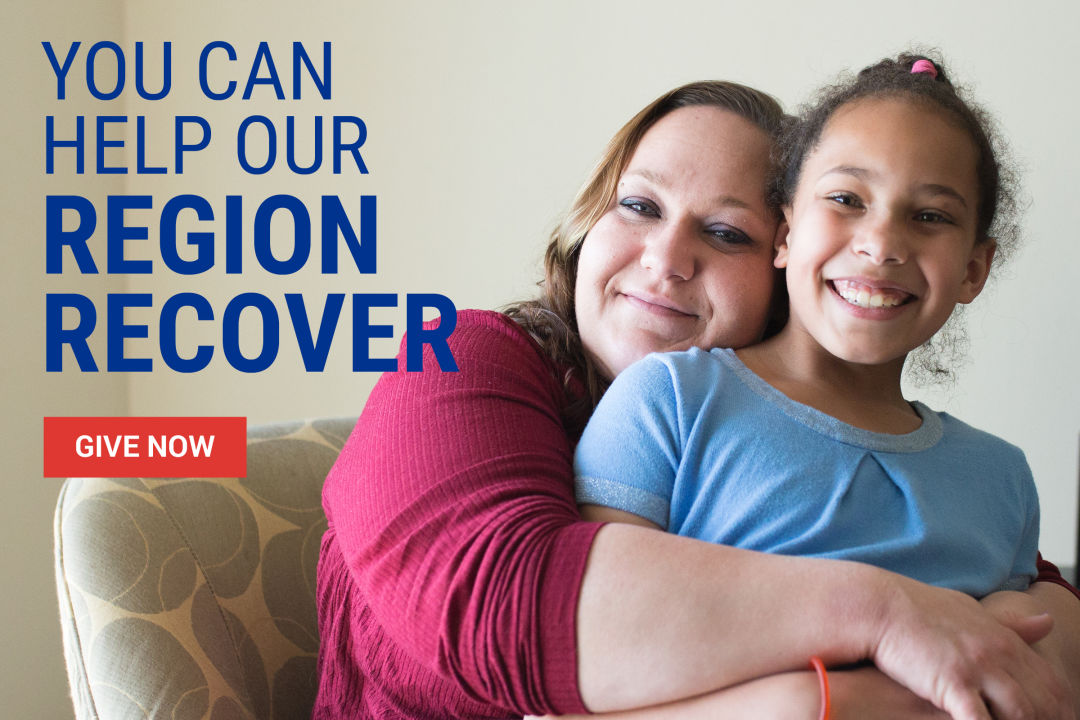A New United Way Initiative Helps Local Communities Recover

One year since the start of the pandemic, thousands of Oregonians are still struggling to make ends meet. Photo by Liz Hummer for United Way of the Columbia-Willamette
Image: Courtesy United Way
With the COVID vaccine roll out, restaurants opened for indoor dining and in-person school back in session, it may seem like things are returning to a new normal in the Portland metro area. But for many, trying to keep their family above water financially in the wake of the pandemic has felt like an impossible challenge.
In Oregon alone, an estimated 89,000 households have fallen behind on rent, with renters across the state owing upwards of $378 million in back rent due to the pandemic.* Families that were already on the edge of houselessness do not have the financial reserves to stay stably housed in the face of high unemployment rates and are forced to make difficult choices between paying for rent, healthcare, utilities, and more. Families like Lexy, her husband and their two children, 10-year-old Aiden and 3-year-old Peyton.
The family of four dropped down to one income in January 2020 when Lexy’s husband was let go from his job with DoorDash, an app where individuals can sign up to deliver takeout orders. When everything shut down in March of that year due to the pandemic, including Aiden’s school, it made it challenging for Lexy and her husband to replace the lost income.
Lexy made a decent wage working as a manager of a local restaurant in Clark County, WA, where she was guaranteed 50 hours a week. As the pandemic continued, and less people were eating out, her schedule was cut to 35-40 hours and Lexy relied on her paid time off to make up the difference. But then a coworker was exposed to COVID and the entire restaurant had to shut down. With her PTO all spent, Lexy missed out on an entire paycheck while the restaurant was closed for the mandatory waiting period.
“Then it just continued to spiral,” says Lexy. It took over two months for her to receive the paycheck relief she qualified for through the CARES Act. In the meantime, missing one paycheck forced Lexy and her husband to go down the path of choosing which bills to pay and where they would need to default. With Washington’s eviction moratorium in effect, the family decided to push back paying their rent in order to make ends meet. “It came down to not paying my rent, and hope for the best, and try to make it through…or lose everything.”

United Way launched the Resilient Families Initiative to provide assistance to the families most affected by COVID-19, including families of color. Photo by Liz Hummer for United Way of the Columbia-Willamette
Image: Courtesy United Way
One year since the start of the pandemic, thousands of families like Lexy’s are still struggling to get by. But this spring you can help families make one less difficult choice.
For 100 years, United Way of the Columbia-Willamette (UWCW) has been working to meet the needs of vulnerable families in our region. No matter the crisis, we have always remained steadfast to our commitment to LIVE UNITED and take care of our community.
In response to the surge in demand for social services due to COVID-19, United Way launched the Resilient Families Initiative to provide supportive housing services and wrap-around supports, prioritizing families of color with the highest risk of being displaced and diverting them from becoming houseless.
There is no better time to act than now. When you donate to United Way’s Resilient Families Initiative, your gift will be matched dollar-for-dollar up to $100,000, thanks to the generosity of United Way of the Columbia-Willamette Board Member, Patrick Purvis.
Our region can recover – but it starts with you. Join us in helping build a more inclusive and equitable region where all families have the resources and opportunities to thrive. Double your impact by giving at give.unitedway-pdx.org/donate today.

Image: Courtesy United Way
*According to a report by Portland State University’s Homelessness Research &Action Collaborative.
